Takashi Miike Directs ‘Onimusha’ Anime Series for Netflix, Starring the Likeness of Toshiro Mifune
Based on the video game series of the same name, Onimusha combines breathtaking samurai-style action with demonic horror.
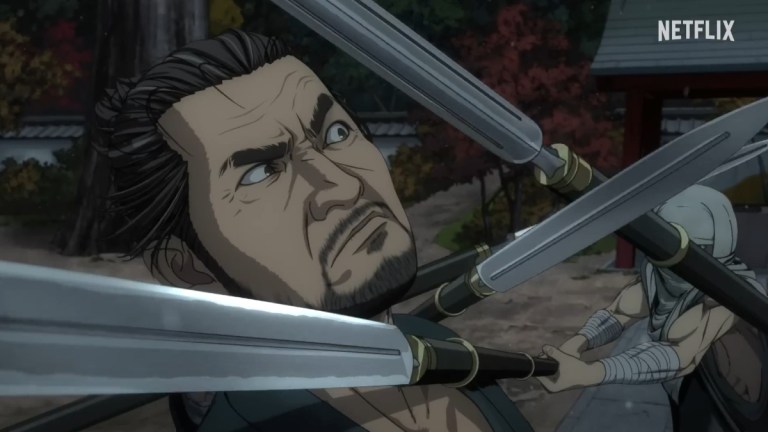
Table of Contents
Everything We Know About Onimusha
Fans of samurai, demons, video games, and Japanese film and television have a lot to be excited about. Netflix’s upcoming Onimusha combines all of those aforementioned elements into what looks to be a beautiful and exciting anime series. Check out the trailer here:
The official description from Netflix describes the series as a story set towards the beginning of the Edo period of Japan in the early 1600s. In this time of transition from war to peace, aging warrior Musashi Miyamoto is sent on a secret mission which leads him into battle against hordes of demonic creatures.
Iconic filmmaker Takashi Miike is the supervising director of Onimusha. Miike is joined by series director Shinya Sugai of the animation studio Sublimation. Sugai previously served as director of the anime series Dragon’s Dogma (2020) and Shikizakura (2021). The series is written by Hideyuki Kurata, writer of the anime series Goblin Slayer (2018), Rurouni Kenshin (2023), and many more. The character designs for Onimusha are by the late artist Kim Jung Gi, with the exception of the design for lead character Musashi Miyamoto whose design is credited to concept artist Manilyn Toledana. The likeness of Musashi Miyamoto is based on legendary actor Toshiro Mifune.
What is Onimusha?
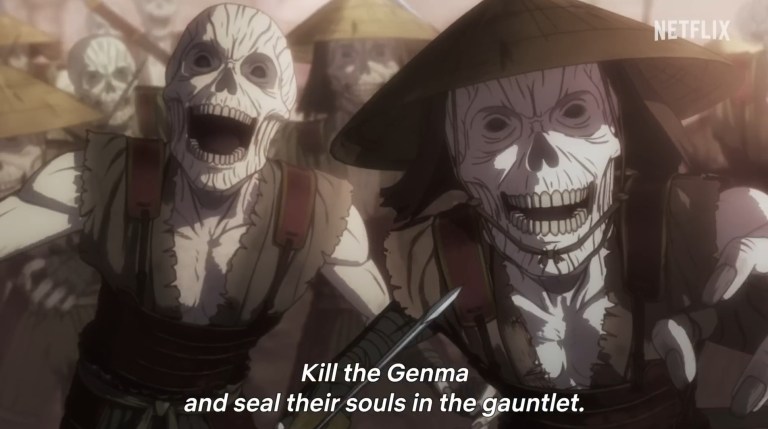
The anime series Onimusha is part of the Onimusha franchise which, up until now, has consisted primarily of a series of video games developed and published by Capcom. Onimusha: Warlords, the first game in the series, was released on the PlayStation 2 console in 2001. The game series features four main entries released between 2001 and 2006, two spinoff games in 2003 and 2004, a mobile game in 2006, and a browser game in 2012. The first game, Onimusha: Warlords, was also remastered in 2018 (released outside Japan in 2019).
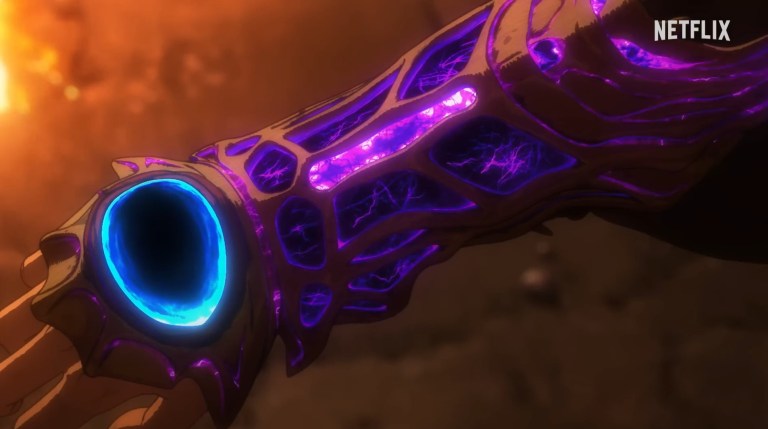
The main four games are all in the action-adventure genre, and they are set towards the end of the Sengoku period (the Warring States period) of Japan in the mid-to-late 1500s. The gameplay was originally inspired by the Resident Evil video games, but with a stronger emphasis on action rather than survival horror. Players typically control a swordsman who must fight against legions of demon-like monsters (the Genma) in a quest to stop a master plan by the forces of darkness.
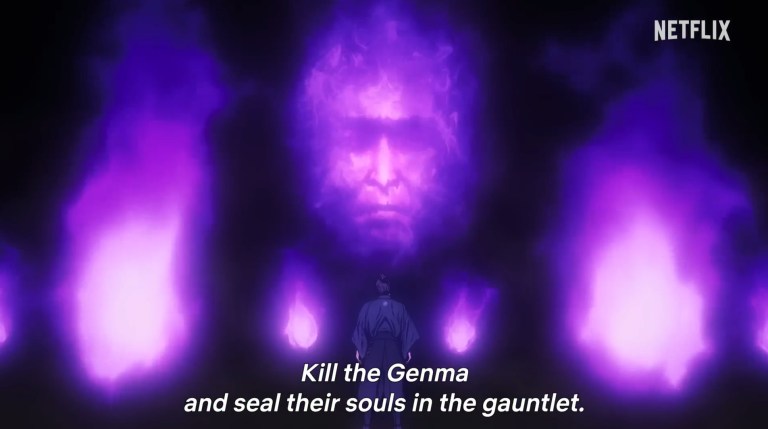
One of the most interesting aspects of the Onimusha series is that is incorporates real historical figures in its stories in prominent roles. The overarching antagonist in the first three games is a fictionalized version of Nobunaga Oda, one of the most influential figures in the history of Japan who was instrumental in beginning the process of unifying the country. The protagonists in the video games are also often based on real people. The hero of the first game, Samanosuke Akechi, was inspired by real-life samurai Hidemitsu Akechi, the hero of the second game, Jubei Yagyu, was inspired by Yagyu Munetoshi, and the fourth game’s protagonist, Soki, was inspired by Yuki Hideyasu.
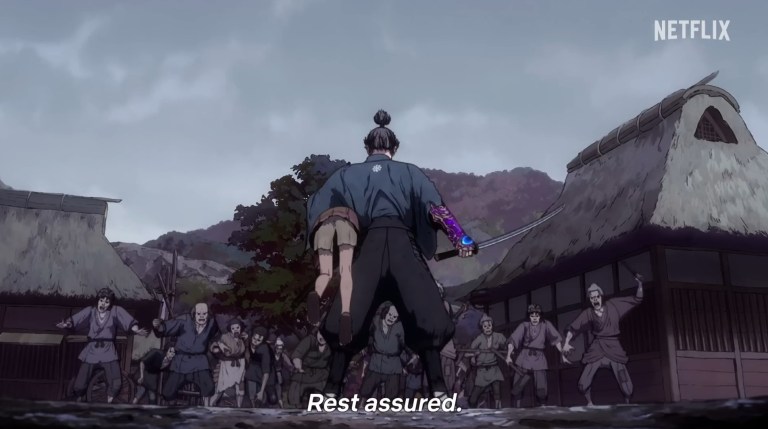
The games are also notable for using the likenesses of famous actors for their lead characters. Samanosuke in Onimusha: Warlords and subsequent games is modeled on Takeshi Kaneshiro who also voiced the part. Kaneshiro is famous for roles in classic films such as Chungking Express (1994), Fallen Angels (1995), and House of Flying Daggers (2004). French actor Jean Reno (Léon: The Professional) is the voice and model for one of the playable protagonists in Onimusha 3: Demon Siege. And the main character of Onimusha 2: Samurai’s Destiny is modeled after actor Yusaku Matsuda who had passed away about 13 years before the game’s release.
Who are Toshiro Mifune and Musashi Miyamoto?
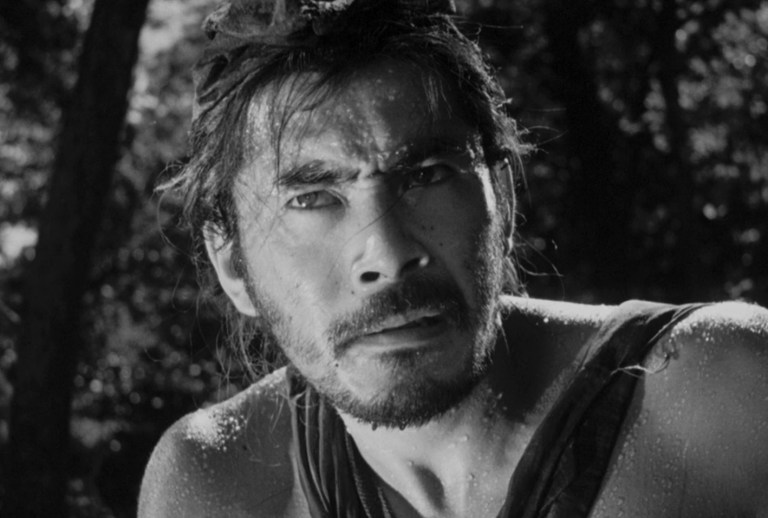
The idea of using a real-life historical figure and the likeness of a real actor is carried over into the Onimusha anime series on Netflix. Many film fans will immediately recognize the visage of Toshiro Mifune when viewing the trailer for Onimusha. Mifune’s acting career spanned nearly fifty years, and in that time he amassed a sizable filmography of powerful roles. He is probably best known around the world for his jidaigeki (period films), many of which were directed by Akira Kurosawa. Just a few of these include Seven Samurai (1954), Yojimbo (1961), Rashomon (1950), and Throne of Blood (1957). Toshiro Mifune passed away in 1997.
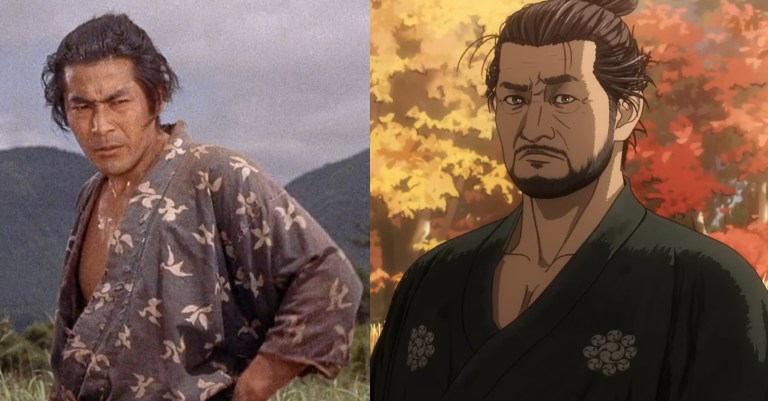
Musashi Miyamoto is also a very familiar name for people who enjoy samurai films. Miyamoto was a real swordsman who was born in the late 1500s and died in 1645. His exploits became legend, and he became a folk hero in Japan. Miyamoto has been the subject and inspiration for numerous films, television shows, books, manga, anime, and more. Musashi Miyamoto’s role as the protagonist in the Onimusha Netflix series fits perfectly with the pattern of the franchise’s other protagonists, and he is arguably the most famous real-life inspiration used for an Onimusha hero to date.
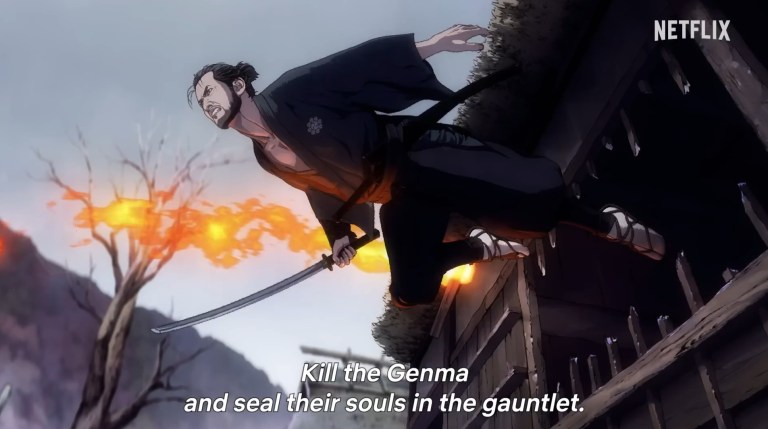
The idea of using a deceased actor’s likeness for a new creative project is something that is always controversial. Is it an homage to the legacy of the performer, a shameless exploitation of the person’s memory, or something in between? Everyone has their own opinion on the matter. What can be said about Onimusha is that, looking at the credits, it appears as if Mifune’s likeness is used in conjunction with Mifune Productions. To the best of our knowledge (according to an interview conducted in 2020), Toshiro’s grandson Rikiya Mifune is involved with the activities of Mifune Productions. So it appears to be that Toshiro Mifune’s estate approved his appearance Onimusha.
Who is Takashi Miike?
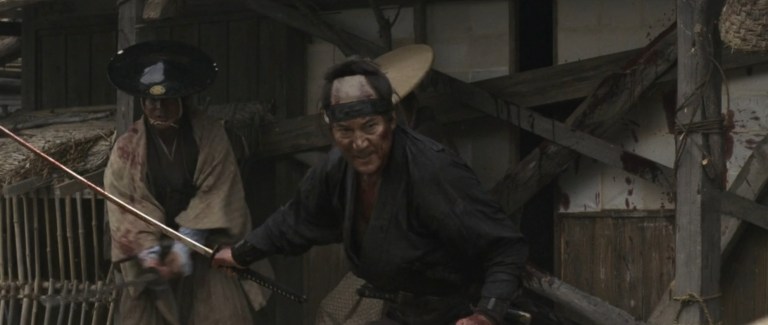
Takashi Miike, the supervising director of Onimusha, is a master of genre filmmaking. For horror fans, he’s best known for directing the disturbing Audition (1999), the creepy One Missed Call (2003), and the gory crime film Ichi the Killer (2001). In addition to numerous horror and crime/yakuza movies, Miike is also adept at directing just about any other genre including comedy, fantasy, action, drama, sci-fi, superhero, and just about anything else. He’s made numerous samurai movies including 13 Assassins (2010), Blade of the Immortal (2017), and Hara-kiri: Death of a Samurai (2011). If you’re not very familiar with Takashi Miike and have maybe only seen his horror movies, then you’re in for a treat with Onimusha. Not only will you get more horror from Miike, but you’ll also experience his take on samurai.
When Can I Watch Onimusha?
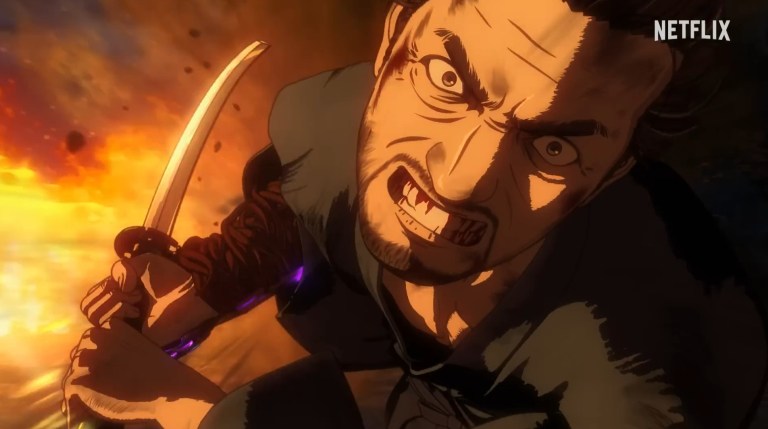
Onimusha streams on Netflix beginning November 2, 2023.
The story in Onimusha appears to be set after all of the other main games in the series (with the exception of part of the third game which involves time travel). By the looks of the trailer, the story will be enough of a standalone so that even if it does connect to the games, there’s very little chance you’ll need to have played them to understand the anime. After all, it would be unwise to expect people to know the details of a game franchise that hasn’t had a new main entry in 17 years. But hopefully there will be Easter eggs for fans of the games.
